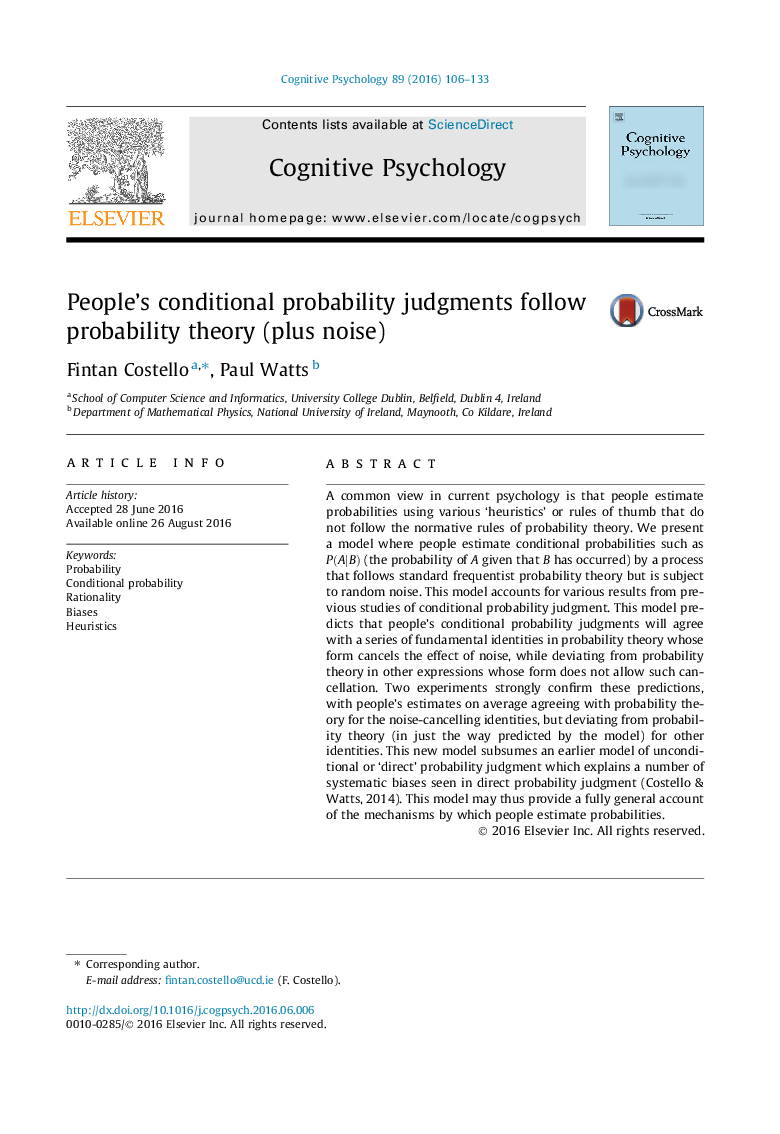| کد مقاله | کد نشریه | سال انتشار | مقاله انگلیسی | نسخه تمام متن |
|---|---|---|---|---|
| 7272712 | 1473375 | 2016 | 28 صفحه PDF | دانلود رایگان |
عنوان انگلیسی مقاله ISI
People's conditional probability judgments follow probability theory (plus noise)
ترجمه فارسی عنوان
قضاوت احتمالی شرطی افراد به دنبال نظریه احتمالی (به علاوه سر و صدا)
دانلود مقاله + سفارش ترجمه
دانلود مقاله ISI انگلیسی
رایگان برای ایرانیان
کلمات کلیدی
احتمال احتمال احتمالی، عقلانیت، بی نظمی، اهریمنی،
موضوعات مرتبط
علوم زیستی و بیوفناوری
علم عصب شناسی
علوم اعصاب شناختی
چکیده انگلیسی
A common view in current psychology is that people estimate probabilities using various 'heuristics' or rules of thumb that do not follow the normative rules of probability theory. We present a model where people estimate conditional probabilities such as P(A|B) (the probability of A given that B has occurred) by a process that follows standard frequentist probability theory but is subject to random noise. This model accounts for various results from previous studies of conditional probability judgment. This model predicts that people's conditional probability judgments will agree with a series of fundamental identities in probability theory whose form cancels the effect of noise, while deviating from probability theory in other expressions whose form does not allow such cancellation. Two experiments strongly confirm these predictions, with people's estimates on average agreeing with probability theory for the noise-cancelling identities, but deviating from probability theory (in just the way predicted by the model) for other identities. This new model subsumes an earlier model of unconditional or 'direct' probability judgment which explains a number of systematic biases seen in direct probability judgment (Costello & Watts, 2014). This model may thus provide a fully general account of the mechanisms by which people estimate probabilities.
ناشر
Database: Elsevier - ScienceDirect (ساینس دایرکت)
Journal: Cognitive Psychology - Volume 89, September 2016, Pages 106-133
Journal: Cognitive Psychology - Volume 89, September 2016, Pages 106-133
نویسندگان
Fintan Costello, Paul Watts,
